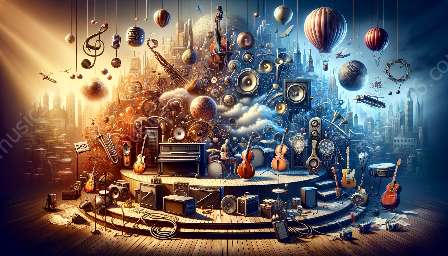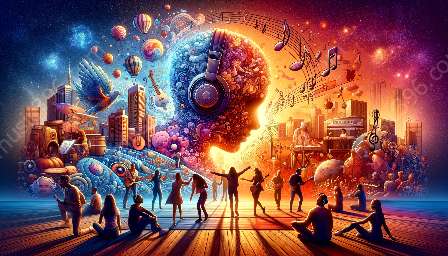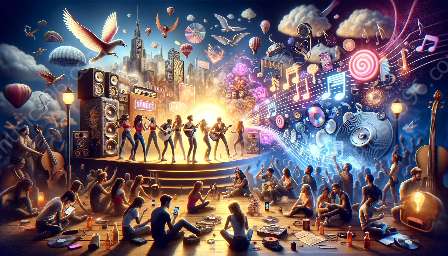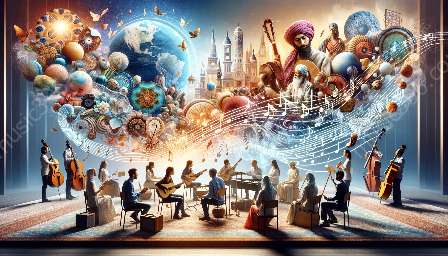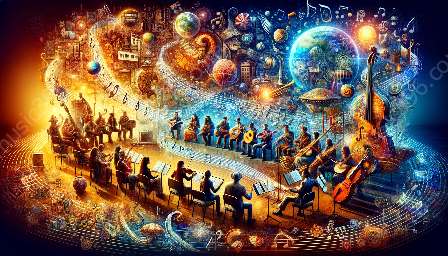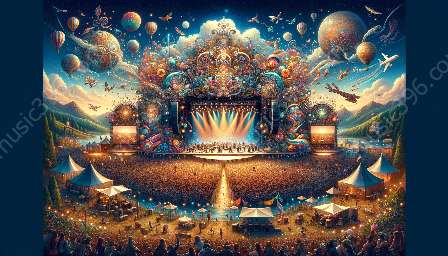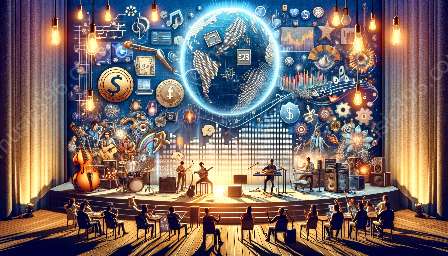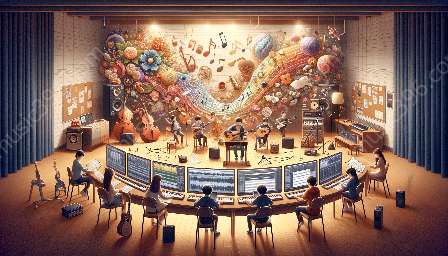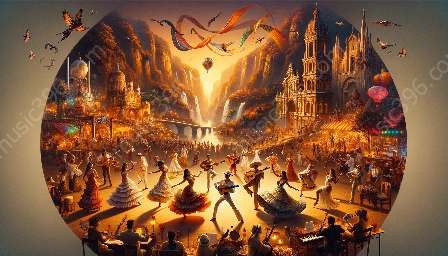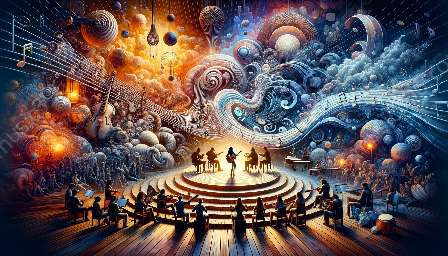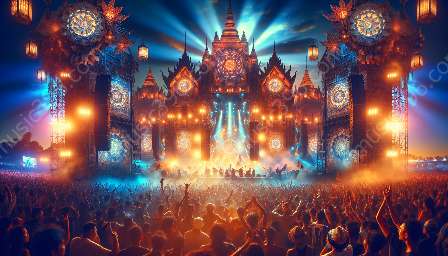Music festivals have long been a cultural staple, offering a coming-together of music, art, and celebration. In recent years, technological innovations have significantly impacted the world of music festivals, revolutionizing the live music experience and reshaping the cultural landscape. This topic cluster offers a comprehensive exploration of the intersection between technology, music festivals, and culture, highlighting the latest advancements and their profound influence.
1. The Evolution of Music Festivals: Embracing Technology
Music festivals trace their roots as far back as the ancient world, where celebrations of music and culture were an integral part of society. Over time, these gatherings have evolved, incorporating technological innovations that have redefined the festival experience.
Advancements in audiovisual technology have played a crucial role in transforming music festivals. High-definition LED screens, sophisticated sound systems, and immersive lighting setups have elevated the production quality, enhancing the impact of live performances and creating more engaging experiences for attendees.
Moreover, the integration of augmented reality (AR) and virtual reality (VR) technologies has enabled festival-goers to immerse themselves in interactive and visually stunning environments, blurring the lines between reality and imagination. Through AR and VR experiences, music festivals have introduced innovative storytelling methods, augmenting the cultural significance of these events.
2. The Digitalization of Festival Experiences: Enhancing Connectivity
As technology continues to advance, music festivals have embraced digital trends to enhance connectivity and engagement among attendees. Mobile applications tailored for specific festivals provide real-time updates on schedules, interactive maps, and personalized recommendations, allowing festival-goers to optimize their experiences and stay connected with fellow attendees.
Furthermore, the integration of cashless payment systems and RFID wristbands has streamlined the logistics of music festivals, enabling seamless transactions and enhancing security measures. This shift towards digitalization has not only improved the overall festival experience but has also paved the way for data-driven insights that inform future event planning and audience engagement strategies.
3. Interactive Installations and Artistic Expression: Fostering Creativity
Technological innovations have not only transformed the technical aspects of music festivals but have also revolutionized artistic expression and interactive installations. From interactive light sculptures and projection mapping to interactive art installations, technology has become an integral part of the creative landscape within music festivals.
These interactive elements offer festival-goers the opportunity to engage with art in unique and immersive ways, amplifying the cultural significance of the event and fostering creativity and expression. Additionally, the convergence of technology and art has opened doors to collaborative projects, allowing artists and technologists to push the boundaries of innovation and cultural relevance.
4. Sustainability and Environmental Consciousness: Integrating Green Technology
With an increasing focus on sustainability and environmental consciousness, music festivals have embraced green technology and eco-friendly solutions to minimize their ecological footprint. Solar-powered stages, eco-friendly infrastructure, and sustainable waste management practices have emerged as prominent features of modern music festivals, reflecting a commitment to environmental stewardship.
Moreover, technological innovations in renewable energy and waste reduction have paved the way for sustainable festival practices, aligning with the growing environmental awareness among festival organizers and attendees. This integration of green technology has not only contributed to a more environmentally responsible approach to hosting music festivals but has also set a precedent for industry-wide sustainability initiatives.
5. The Future of Music Festivals: Anticipating Technological Advancements
Looking ahead, the future of music festivals holds immense potential for further technological innovations. The advent of 5G technology promises to revolutionize connectivity and digital experiences, enabling real-time streaming, enhanced interactivity, and immersive content delivery during music festivals.
Furthermore, advancements in artificial intelligence (AI) and machine learning present opportunities for personalized and adaptive festival experiences, catering to the diverse preferences and interests of attendees. AI-driven technologies can optimize crowd management, enhance security measures, and curate customized festival experiences, thereby shaping the future landscape of music festivals.
Conclusion
Technological innovations have undeniably redefined the essence of music festivals, enriching the live music experience and reimagining the cultural significance of these events. As technology continues to evolve, its influence on music festivals and culture will remain a dynamic and transformative force, shaping the future of communal celebration and artistic expression.

